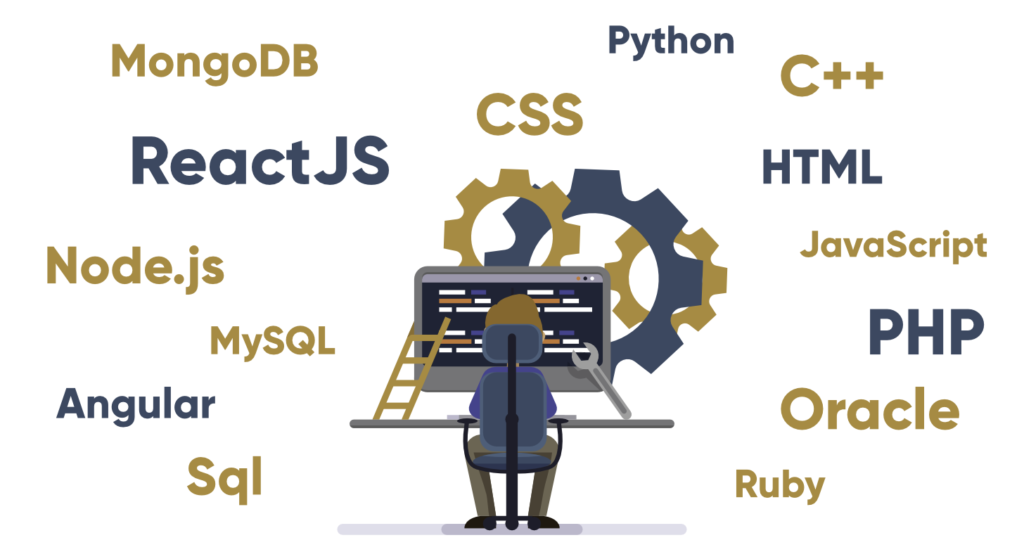
In the realm of software development, two prominent roles often stand out: full stack developer and software engineer. While both contribute to the creation and maintenance of software applications, they differ in their focus, skill sets, and qualifications. In this article, we’ll explore the key differences between a full stack developer and a software engineer and outline the qualifications needed for each role.
Full Stack Developer: The Jack-of-All-Trades
Definition: A full stack developer is a versatile professional who possesses expertise in both front-end and back-end development. They are capable of working on all aspects of a software application, from user interface design to server-side logic and database management.
Focus: Full stack developers are known for their ability to handle a wide range of tasks, making them proficient in various programming languages, frameworks, and tools. They bridge the gap between front-end and back-end development, ensuring the entire application functions seamlessly.
Qualifications for Full Stack Developers:
Educational Background: While formal education is valuable, full stack developers often come from diverse educational backgrounds. Many have bachelor’s degrees in computer science or related fields, but self-taught developers or coding bootcamp graduates are common in this role.
Front-end Skills: Proficiency in front-end technologies such as HTML, CSS, and JavaScript is essential. Knowledge of front-end frameworks like React, Angular, or Vue.js is a plus.
Back-end Skills: Full stack developers should be well-versed in server-side programming languages (e.g., Node.js, Python, Ruby, Java) and databases (SQL or NoSQL).
Version Control/Git: Proficiency in version control systems like Git is crucial for collaboration and code management.
Problem-Solving Skills: Full stack developers should excel at troubleshooting and problem-solving, as they often work on various components of an application.
Software Engineer: The Architect and Builder
Definition: A software engineer, also known as a software developer or simply engineer, focuses on designing, developing, and maintaining software applications and systems. They may specialize in specific areas, such as front-end, back-end, or system-level development.
Focus: Software engineers tend to have a more specialized focus and often work on larger projects or components of complex systems. They design software architecture, write code, and optimize performance.
Qualifications for Software Engineers:
Educational Background: Software engineers typically hold bachelor’s degrees in computer science, software engineering, or related fields. Advanced degrees can be advantageous for specialized roles or research positions.
Programming Languages: Proficiency in programming languages such as Java, C++, C#, Python, or JavaScript is essential. The choice of language depends on the specific project and application type.
System Design: Software engineers should have a deep understanding of software architecture, design patterns, and system-level considerations.
Development Methodologies: Familiarity with development methodologies like agile (e.g., Scrum or Kanban) is common in the industry.
Testing and Quality Assurance: Knowledge of software testing practices, including unit testing, integration testing, and quality assurance processes, is vital.
Key Differences and Overlaps:
Versatility vs. Specialization: Full stack developers are versatile and work on both front-end and back-end, while software engineers may specialize in specific domains, such as front-end or system-level development.
Scope of Responsibility: Software engineers often work on larger projects and may be responsible for designing complex systems, whereas full stack developers handle a broader range of tasks within a project.
Qualifications: Both roles require a strong educational foundation, but full stack developers may have a lower barrier to entry and can include self-taught or bootcamp graduates.
In conclusion, full stack developers and software engineers play distinct but complementary roles in the world of software development. The choice between the two roles depends on your interests, strengths, and career goals. Whether you prefer the versatility of a full stack developer or the specialization of a software engineer, both paths offer exciting opportunities in the ever-evolving field of software development.
Contact us to find out more of your study options.

